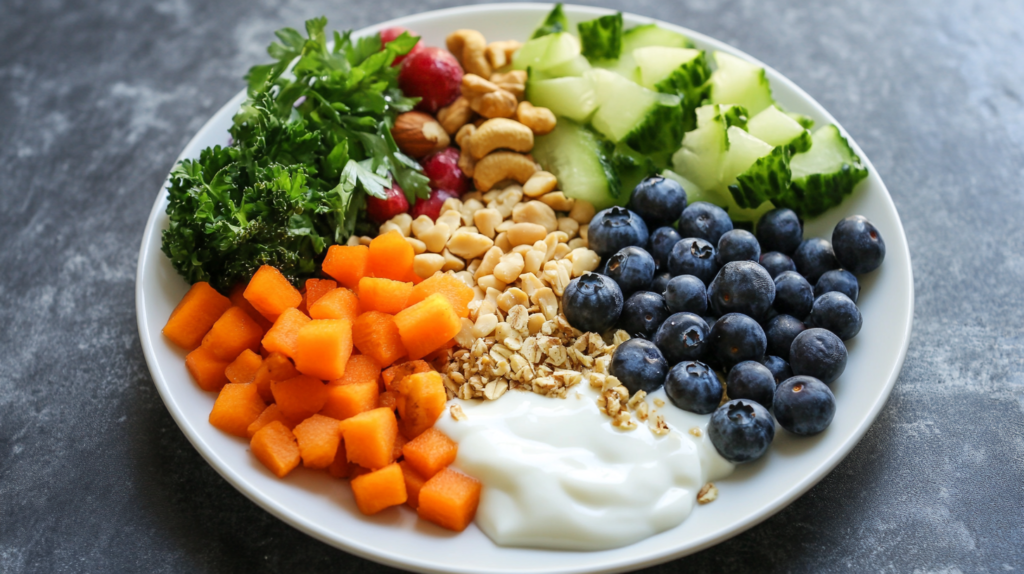Blueberries are widely regarded as a superfood, celebrated for their rich nutrient profile and potent antioxidant properties. However, a recent wave of curiosity has led to the question: Do cardiologists say not to eat blueberries? This concern has gained attention due to the significant role diet plays in cardiovascular health.
This article examines whether cardiologists discourage blueberry consumption, exploring their scientific benefits, potential risks, and expert recommendations. By analyzing research findings and dispelling myths, we provide a clear perspective on how blueberries fit into a heart-healthy diet.
Table of Contents
Nutritional Benefits of Blueberries
Key Nutrients in Blueberries
Cardiologists emphasize the importance of nutrient-rich foods in heart health. Blueberries are packed with essential vitamins, minerals, and fiber, making them a powerful addition to a balanced diet. A single cup of fresh blueberries (148g) provides:
- Vitamin C – Supports immune function and collagen production.
- Vitamin K – Crucial for blood clotting and bone health.
- Manganese – Aids metabolism and bone development.
- Fiber – Promotes digestive health and regulates blood sugar levels.
Additionally, blueberries are low in calories (84 calories per cup) and high in water content, making them a great choice for weight management, which is vital for cardiovascular health.
Antioxidants in Blueberries & Cardiologists’ View
Blueberries contain high levels of antioxidants, particularly anthocyanins, which give them their deep blue color. These antioxidants:
- Combat oxidative stress, reducing inflammation in blood vessels.
- Lower LDL (bad) cholesterol while increasing HDL (good) cholesterol.
- Improve blood vessel function, helping to maintain healthy blood pressure.
How Blueberries Compare to Other Heart-Healthy Fruits
Compared to apples, bananas, and oranges, blueberries have a higher concentration of anthocyanins, making them one of the most potent heart-friendly fruits.
Potential Concerns About Blueberries

Can Blueberries Be Harmful? Insights from Cardiologists
While blueberries are generally safe, some individuals may need to limit their intake due to:
- Gastrointestinal discomfort from excessive fiber consumption.
- Allergic reactions, although rare, can cause itching or anaphylaxis.
- Natural sugar content, which may impact those with diabetes.
Situations Where Cardiologists May Recommend Caution
- Blood-Thinner Interactions – Blueberries contain vitamin K, which can interfere with anticoagulant medications like warfarin.
- Kidney Stone Risk – Moderate levels of oxalates in blueberries could contribute to kidney stones in susceptible individuals.
- Diabetes Management – While blueberries have a low glycemic index, those on strict low-carb diets should monitor intake.
Scientific Research on Blueberries and Heart Health
Do cardiologists say not to eat blueberries
Research strongly supports blueberries’ role in promoting heart health:
- Lowering Blood Pressure: A study in the Journal of the Academy of Nutrition and Dietetics found that 50g of blueberries daily reduced systolic blood pressure.
- Improving Arterial Health: The American Journal of Clinical Nutrition reported that consuming 200g of blueberries enhanced blood vessel function.
- Cholesterol Management: Blueberries help lower LDL cholesterol, reducing artery plaque buildup.
Contradictory Studies or Considerations
While most research is positive, some studies suggest that blueberries’ effects may vary based on:
- Individual metabolism – Different people absorb nutrients differently.
- Overall diet quality – Blueberries alone cannot compensate for a poor diet high in processed foods.
Myths and Misconceptions
Do Cardiologists Actually Recommend Avoiding Blueberries?
No, the notion that cardiologists discourage blueberry consumption is a myth. Instead, most heart specialists encourage their inclusion in a balanced diet. The confusion arises from:
- Misinterpretations of dietary restrictions (e.g., vitamin K concerns).
- Exaggerated social media claims spreading misinformation.
Social Media’s Role in Misinformation
Many health myths spread through sensationalized headlines. Claims such as “Blueberries Are Bad for Your Heart” often lack scientific backing. Cardiologists advise relying on reputable medical sources instead of viral trends.
Practical Advice from Cardiologists

How to Eat Blueberries for Maximum Heart Health
- Daily Serving – Aim for ½ to 1 cup daily.
- Balanced Diet – Combine with leafy greens, lean proteins, and whole grains.
- Smart Pairings – Mix with yogurt, oatmeal, or salads for a nutrient boost.
Consulting a Cardiologist for Personalized Advice
While blueberries are generally safe, those with medical conditions (e.g., on blood thinners or with kidney disease) should seek personalized dietary guidance.
Frequently Asked Questions
Are Blueberries Safe for Everyone?
Yes, but individuals with allergies or kidney concerns should consult a doctor.
Can Blueberries Lower Cholesterol?
Yes. Studies show they help reduce LDL cholesterol and boost heart health.
What Are the Best Ways to Eat Blueberries for Heart Benefits?
- Fresh or Frozen – Retains maximum nutrients.
- Avoid Added Sugar – Stick to natural forms.
- Pair with Other Superfoods – Oats, nuts, and leafy greens.
Conclusion
Cardiologists overwhelmingly support blueberry consumption as part of a heart-healthy diet. Their high antioxidant content, cholesterol-lowering effects, and blood pressure benefits make them a powerful ally for cardiovascular health. While certain medical conditions may require moderation, the myth that cardiologists advise against blueberries is unfounded.
For most individuals, enjoying ½ to 1 cup daily can contribute to better heart health and overall well-being.
If you’re looking to add more heart-friendly recipes to your diet, try this blueberry compote as a delicious and healthy option!

